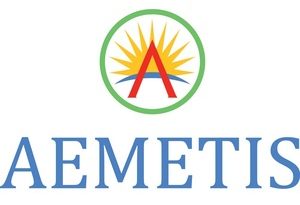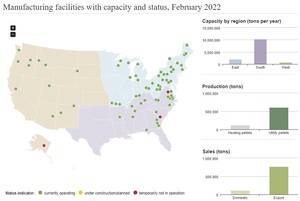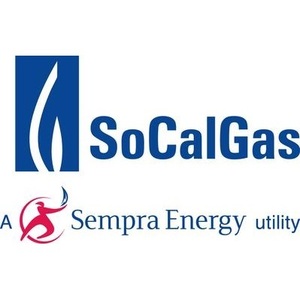Canada seeks proposals for biomass supply chain projects
Energy Disrupter
ADVERTISEMENT
The Canadian government is seeking proposals for projects that will support the establishment of biomass supply chains to ensure that a steady and usable supply of sustainable feedstock is available to clean fuel production facilities across the country.
The biomass supply chain initiative is a component of Canada’s Clean Fuels Fund. The Canadian government launched its C$1.5 billion Clean Fuels Fund in June 2021, announcing that the fund would have three separate components, including $1.38 billion to support the build out of clean fuels production capacity, $30.4 million to support the establishment of biomass supply chains, and $19.4 million to support the development of critical codes, standards and regulations.
The call for proposals establishing biomass supply chains projects was issued on Aug. 25 and includes three different project streams: non-Indigenous projects (stream 1), meaningful Indigenous-led projects stream (stream 2), and majority Indigenous-led projects stream (stream 3). Each of the three project streams has separate eligibility criteria and different deadlines, funding levels and contribution repayment requirements.
According to the CFF applicant guide, eligible production projects include those that help establish biomass supply chains that are able to aggregate, process, handle and store a range of biomass feedstocks from various locations and sources in a cost-effective, sustainable manner to facilitate their availability and use in the production of clean fuel. Certain feasibility projects are also eligible for the funding opportunity, including feasibility studies, basic engineering studies, and detailed front-end engineering studies that will support the establishment of biomass supply chain projects.
Eligible activities include the purchase or study of equipment to support processing, logistics or feedstocks collection, handling and storing feedstock, and/or establishing a regional biomass supply chain risk rating.
Both animal- and plant-based feedstocks are eligible, including forest biomass from fire prevention and protection activities; crop residues or damaged crops; secondary forest residues that are byproducts of industrial wood-processing operations; used or inedible organics from a residential area, retail store, restaurant, caterer, or food processing plant; used fat or vegetable oils; used animal litter or bedding; animal materials; industrial effluents; municipal water; and used construction or demolition materials.
The funding opportunity is targeting large-scale and commercial projects. Industry projects must be capable of processing 30,000 metric tons of processed feedstock annually. The threshold for Indigenous projects is 20,000 metric tons of processed feedstock annually. To be eligible, at least 50 percent of processed feedstock must be directed to a clean fuel production facility. Projects must be complete by March 31, 2026.
Applications for non-Indigenous projects will be accepted until Nov. 23. Indigenous applications will be accepted on a continuous basis until funding is no longer available.
Additional information is available on the Natural Resources Canada website.
















